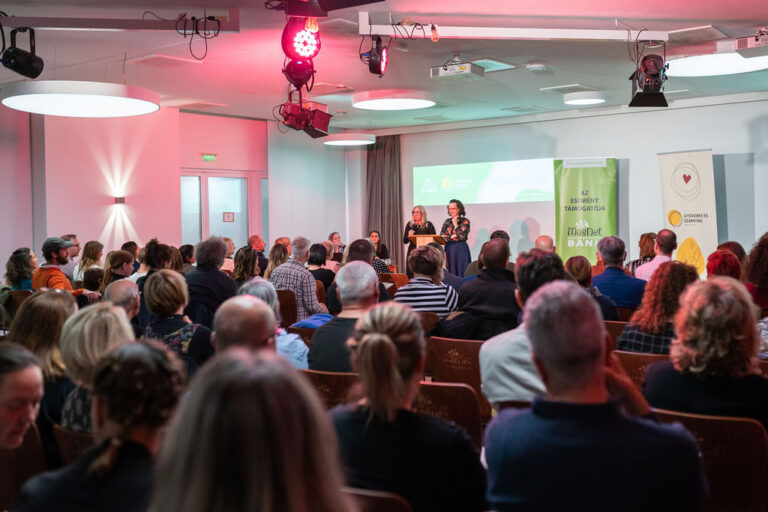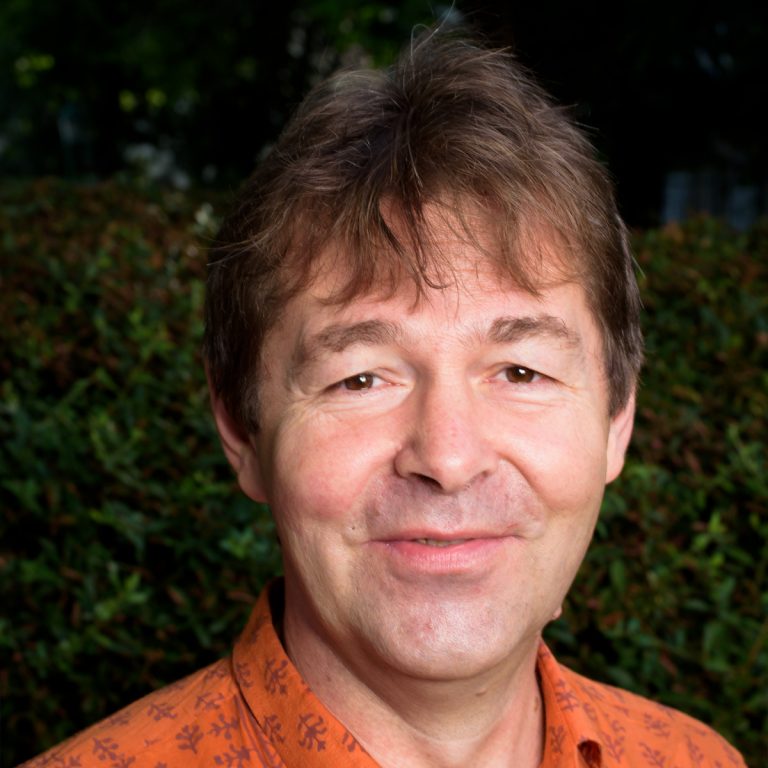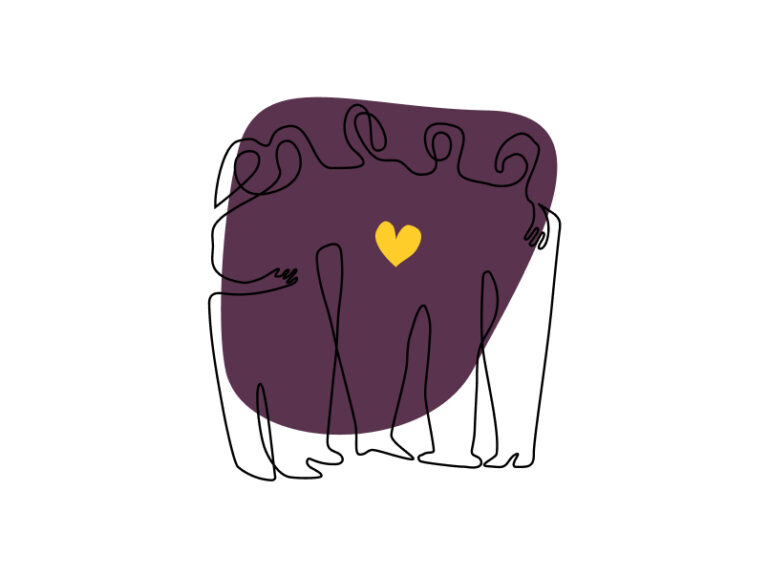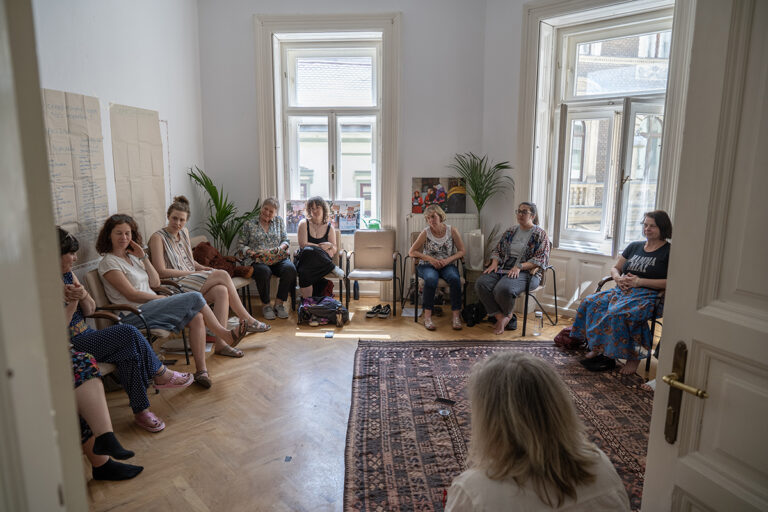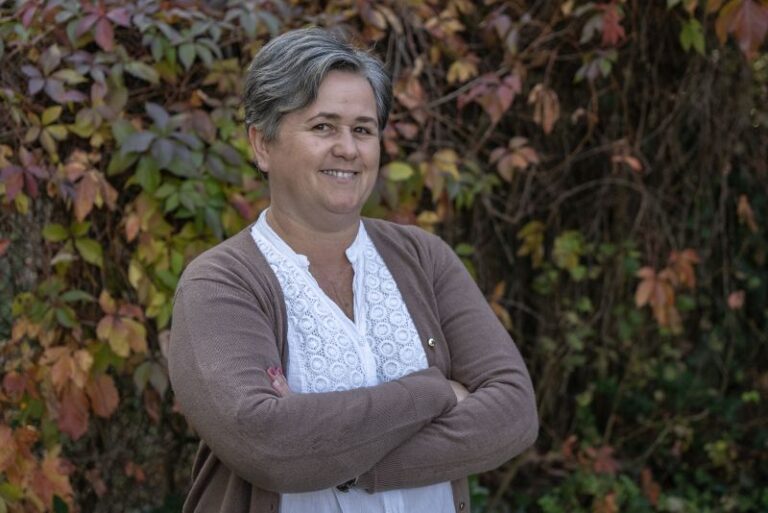“I started saying that if we set up a proper team, we’ll go play football in Barcelona.”
Football life has flourished in Komádi. Today, 150 children play for JVSC-Komádi across 10 age-group teams, and 20 of them actually played against one of FC Barcelona’s youth squads. The driving force behind the club is Anita Karácsony K. Nagyné, who is about to receive her coaching qualification and is a supported participant in our Revitalising Small Towns program. We spoke with her about how football brings the community together and the positive social impact youth sports can have locally.
Why did you feel it was your duty to work with the local community in Komádi?
It goes back quite a while: I’ve always been someone people trusted at school—I was the one organizing class trips, for example. That role eventually grew, especially when my son turned 8 or 9. At that age, kids don’t really know what to do with their free time. They started kicking the ball around, and it was initially a spontaneous initiative by some parents. After much deliberation, we officially founded JVSC-Komádi at the end of 2022—because that’s the only way we could legally receive support. Honestly, I think I’d go crazy if I had nothing to organize. My mind is constantly spinning, thinking of what we haven’t done yet, just so the kids don’t get bored.
You see football not just as a sport, but as a force for community building. Is that fair to say?
Absolutely. Parents and siblings come to the trainings and matches. There were a bunch of girls coming, too—so I formed a cheerleading team out of them. I bring in food vendors for home games, organize crowds, and build a fan base. We’ve even held a JVSC Easter event where we cooked, set up a bunny photo wall, had a bouncy castle, and even horse riding. We managed to attract a lot of kids.
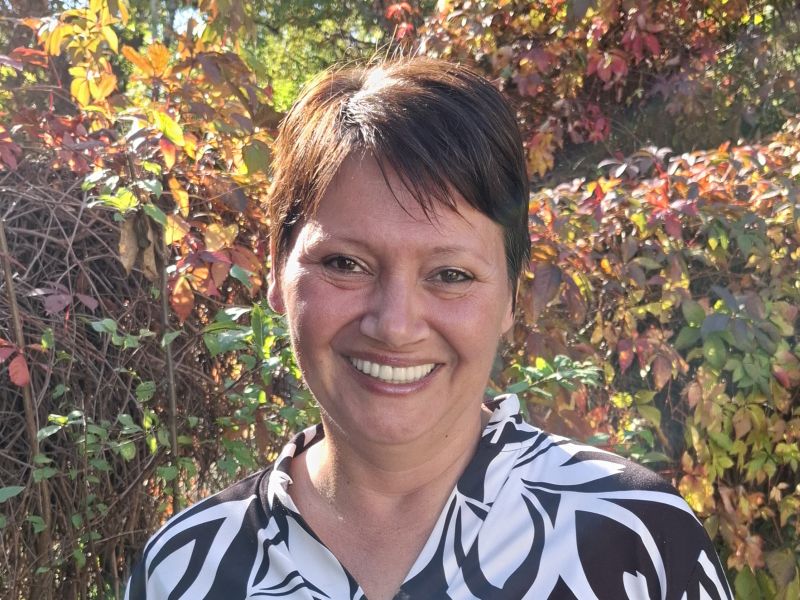
How big is the football scene compared to the size of the town?
According to the most recent census, the town has fewer than 5,300 residents—though Komádi used to be home to more than 10,000 people, which is quite alarming. Right now, we have 125 registered players, 150 are playing actively, and more kids are joining, many approaching the club on their own initiative.
How many teams does that mean?
We have U7, U9, U11, U13, U14, and U16 teams—that’s six football squads. And we also have four futsal teams.
Who are the coaches?
Basically, we don’t have our own full-time coaches—we hire external ones and pay them. But mostly, my husband and I run the training sessions, and some parents help out from time to time.
Did you ever think you’d become a football coach?
Never. I’ve hated football all my life. My father used to watch matches constantly, and I never understood what was so great about it.
What changed?
Someone we knew invited our amateur team to a cup in Debrecen. It was a ragtag group of six players—some were 8, others 10—dressed in mismatched tracksuits and without proper football shoes. Out of four matches, we won three and drew one. One opposing coach told his team: “See? That’s how you win!” That was an incredible motivation. Since then, I’d say I feel football. The love for it begins when we step onto a full-sized pitch: that’s when real positions, awareness of others, and connection start to form. And we’re right there on the sidelines like big-league coaches, shouting with all we’ve got through the whole match. That’s when life begins—these matches are just as important to us as if we were playing in the Champions League.
Are you and your husband getting certified as coaches?
I’ve attended an MLSZ (Hungarian Football Federation) training course and I’ll finish it soon with a retake. No worries—I’m not the giving-up type. But I’ll note: it’s not necessarily because I didn’t know the material. (Smiles.)
What happens once you pass?
I’ll receive the base license and will officially be allowed on the bench. Though, let’s be honest—I already go there, and good luck to anyone trying to send me away. (Laughs.)
How many sessions do you run weekly?
Two—Tuesdays and Thursdays. We stagger them for the different age groups, but if fewer kids show up for some reason, we sometimes train them all together. That’s great because the older kids learn to look out for the younger ones, and the little ones learn not to be afraid of the big kids—there are some really fun battles for the ball. And our teams, full of these scrappy fighters, are consistently in the top three across the 8–10-team strong leagues in nearly every age group.
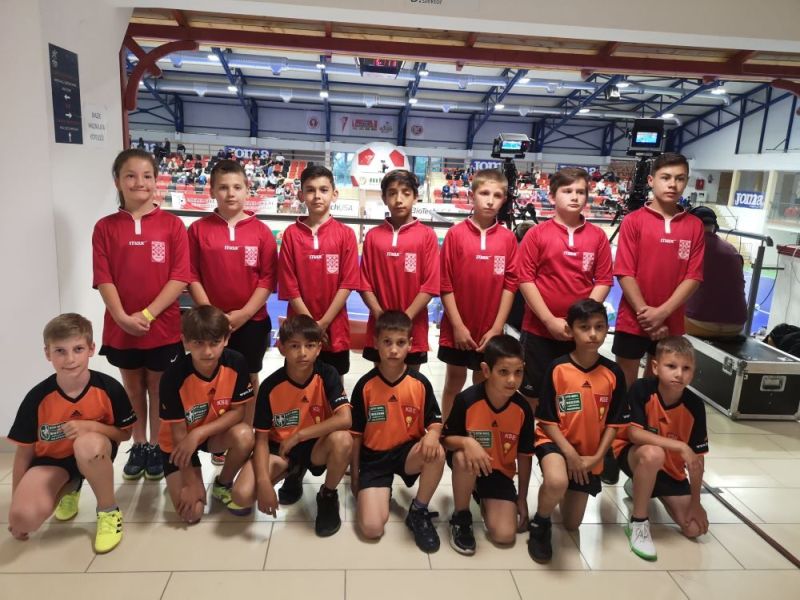
What have been JVSC’s biggest achievements in recent years?
There had been no youth football in Komádi for more than 15 years, and now it’s thriving again. In the 2023–24 season, our U13 and U14 teams won their regional championships, and our U11 futsal team also came first. Several other teams reached the podium as well. In 2022–23, our U11 futsal team finished second in a tournament with Hajdúszoboszló SE and DASE. Szoboszló won, but we beat DASE to take silver. So far this year, our U13 team is undefeated, and most age groups are currently in the top 3 of their league tables. At Christmas 2024, we recognized the kids’ performances with trophies in every category—each group had either podium finishes or standout players deserving special awards. A glance at the MLSZ database shows our kids topping the scoring charts.
You even played against Barça, right?
Even before we officially formed the club, I used to say: if we establish ourselves and have a solid team, we’ll go to Barcelona to play. Everyone loved the idea.
Did you believe it yourself?
Yes, I knew I was capable of making it happen. A year passed, the club was established, we joined the Bozsik Program, and then the kids—and later the parents—started asking, “Anita, when are we going to Barcelona?” That’s when I realized how powerful spoken words can be.
So, I got to work. I knew the city, the sights, and I had an excellent contact whom I asked for help with the arrangements. He arranged accommodation, a bus, and contacted one of the local youth teams. Then I started thinking about what else I could add to make it even more special. I wrote to Wizz Air asking if the captain could greet the children on the flight there and congratulate them on the way back—and they did! I contacted the Hungarian embassy, explained our plans, and the ambassador received us as well. It’s amazing what we can achieve here, from little Komádi.
How many children did you take with you?
There were 34 of us on the trip, including 20 children.
How many of them had never been abroad before?
Maybe five of them had been abroad before. In fact, many of them had never even been beyond the town’s borders. So this was definitely no small thing.
Where did you look for sponsors? Who funded the trip?
The local government provided funds for tracksuits and jerseys, which we still use today—I wash them myself. They also covered the airport transfers, both ways. We didn’t receive any other financial support. The parents covered the cost of the trip, often in installments. Even with flights, accommodation, five meals a day, and activities included, it remained affordable.
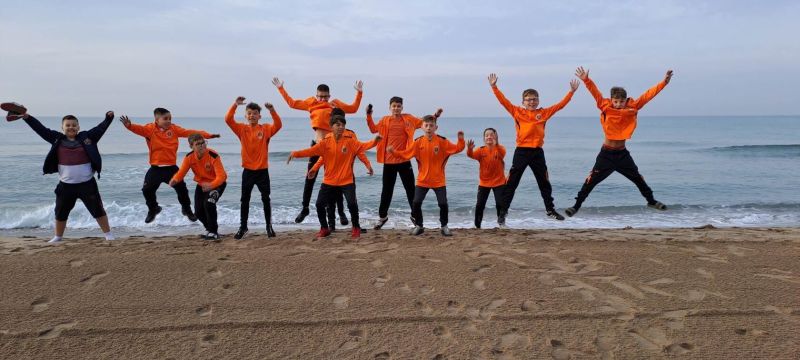
How many matches did you play, and what were the results?
We played two matches against one of Barcelona’s feeder clubs—there are actually a lot of them. We lost, but they were close games—one ended 4–2, if I remember correctly. Our kids played really well and didn’t feel like losers.
It was actually quite incredible—there were hundreds of kids at the training in that district, with enormous attention from coaches and assistants. Everything ran under strict rules, in professional conditions. You could see how everything was structured and regulated, whereas we mostly operate on intuition and emotion.
What will be the biggest professional challenge in the coming years?
There are so many children, and we need more adults to help. I’m trying to find people who understand football and can fit into our system, because ideally every age group should have its own coach. That’s not easy, though, because kids bond with people—not everyone is accepted as a coach. And if they don’t like the coach, they stop showing up.
How financially sustainable is the club’s operation?
Since 2021, my husband and I have worked without pay; we can’t receive a salary until we’re officially accredited. We can only organize football camps by inviting a professional coach whom we must pay. Team travel costs money too—the driver charges a daily fee, and the bus has running costs, which we can’t always collect from the families. I often cover the shortfall myself.
Many disadvantaged families can’t even get their child to the bus, or they have no way to ensure their child arrives. I go and pick them up before departure, and often give them breakfast as well—many parents can’t manage that either. At the end of the day, I take them home. But it’s worth it: the kids run up to me and hug me. It feels like one big family.
We recently became eligible to receive the 1% tax donation, and last year we raised 37,000 forints (about 100 euros) from it. I’m very proud of that because we managed to reach quite a few people. We also have some sponsors, and of course, there’s the Roots and Wings Foundation.
How did you find the foundation?
On Facebook. I try to apply to every grant opportunity for the club, and your call popped up—I felt like it was written for me. I applied immediately. Then you called and said I’d made it to the second round. That alone meant so much. I’d had some conflicts in Komádi, because I ran for local office, and your call sent the message that even people who don’t know me can see what’s worth seeing—and that I’m needed.
What have you used the foundation’s financial support for?
We hosted a huge Christmas celebration in the sports hall, with about 500 people attending. Every child received a gift, and we recognized everyone who had helped—parents, school leaders, other supporters. We had a giant cake, a Christmas tree, a gingerbread house, and everyone brought a handmade ornament. That’s how we got our own JVSC Christmas tree.
The most amazing part was getting in touch with the leader of the Ford C-Max Club of Hungary, who do charitable work. I asked them to bring gifts for 105 kids. I told them I couldn’t choose between the children—if they could, then please go ahead. And they did! They brought the gifts in a 21-car convoy, matching the children’s wishes. A large part of the event’s costs was covered by the funding from the Roots and Wings Foundation. Their support has been incredibly valuable, especially since so many other sources are uncertain.
Another big surprise was a little train decorated for Christmas that came to our town. Anyone who wanted could hop on. It circled through the streets of Komádi several times, lit up with festive lights and playing Christmas music—it brought joy to everyone. First it picked up the children from the nursery, then parked in front of the schools. The kids’ eyes widened in wonder, and they climbed aboard with joy. Even adults were happy to join. Then came a cheeky question—someone joked: “Will there be mulled wine next time?” And I thought—just wait for Christmas 2025.
This was something completely new for Komádi.
What do you expect from our professional support?
I hear a lot of great ideas that I take to heart. I’m sure you’ll be able to help me involve new people and figure out how to delegate tasks better.
This is an amazing opportunity to let off steam, be heard, and develop my mindset. I’m learning to see myself through someone else’s eyes. I’m growing, opening up, learning to let go—and most importantly, I’m finding ways to recharge.
(Iván Bardócz)
